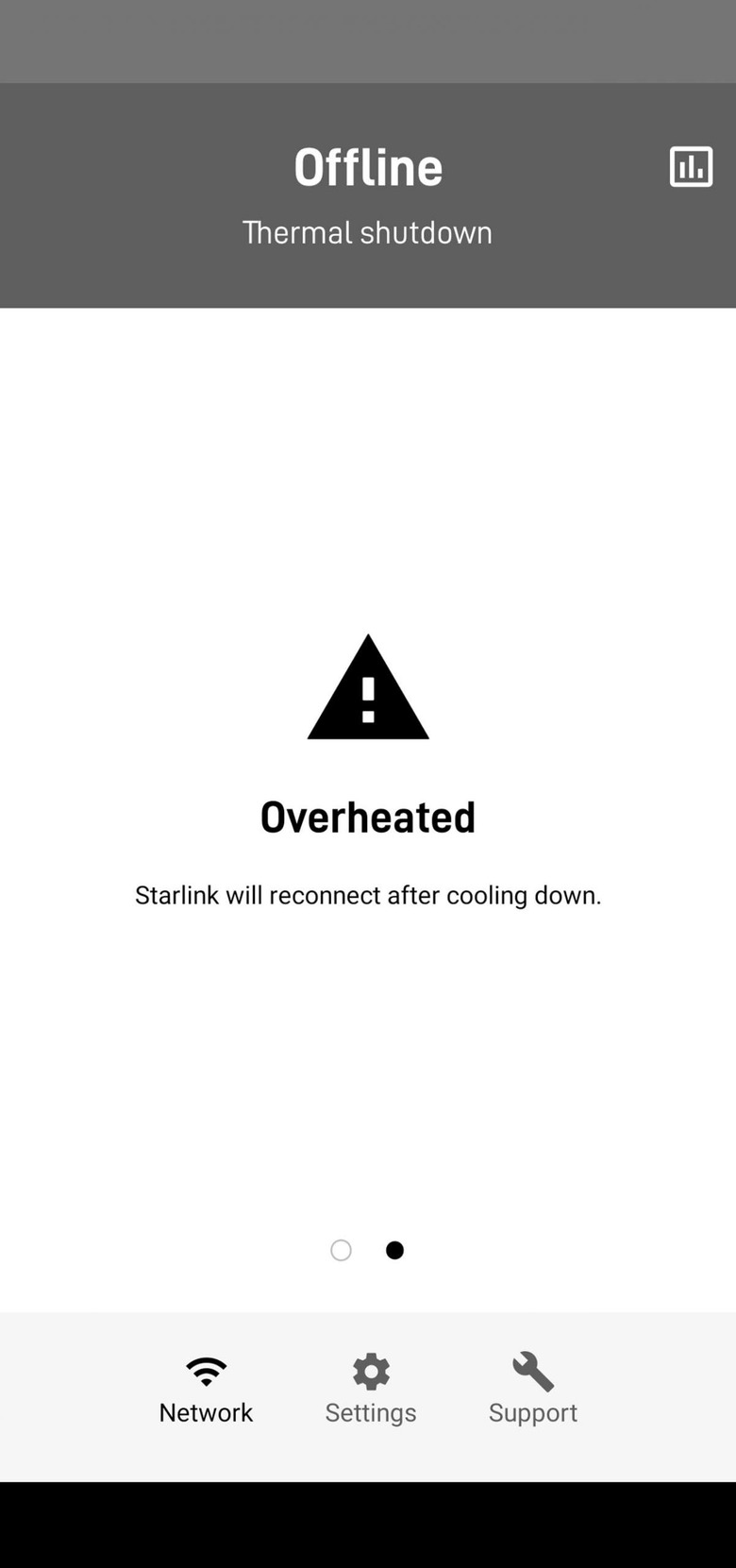Starlink User Finds A Significant Flaw With The Satellite Dish
One of the more interesting things SpaceX has done in recent years is launching large numbers of Starlink satellites into orbit. Eventually, the constellation of satellites will provide continuous Internet coverage all over the US and potentially the world. The Starlink satellites beam Internet connectivity to receiving satellite dishes on the ground at people's homes and other locations.
However, with the summer here and temperatures soaring in many parts of the country, a significant issue has recently come to light for the Starlink satellite dish. A user on Reddit going by SocietyTomorrow recently posted a screenshot of a warning message, which can be seen below, showing that the satellite dish overheated and shut down. With the dish shut down, Internet connectivity stopped.
The user, who says they live in Arizona, reported temperatures were 112 degrees at the time and, the heigh was supposed to be 119. Another Starlink user going by Beta Tester said they were having the same problem with their Starlink satellite dish placed 50 miles south of the Grand Canyon in a remote area. The dish had been overheating in the soaring temperatures, and Internet connectivity was lost.
Interestingly, the original poster SocietyTomorrow says they found an easy if inconvenient, solution. The user pointed a spike down sprinkler at the dish, and with the water running over it, Internet connectivity resumed. With much of the United States maintaining triple-digit temperatures the entire summer, a satellite dish that overheats and shuts down during warmer months could be a significant issue.

There has been no word from SpaceX so far on a potential fix for the issue. It's also unclear if there might be some defect with the satellite dishes impacted by the heat. For now, the workaround seems to be a cooling system of some sort to prevent the satellite dish from turning itself off. It's worth noting there are other reports via Reddit that users in high-temperature areas have experienced no shutdowns.
